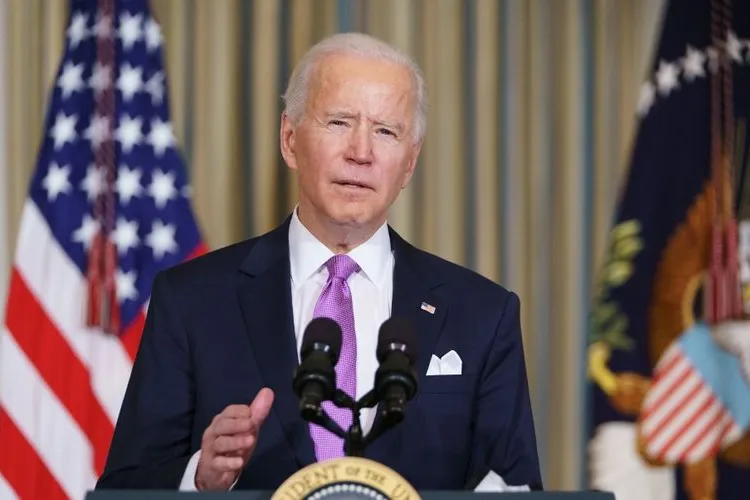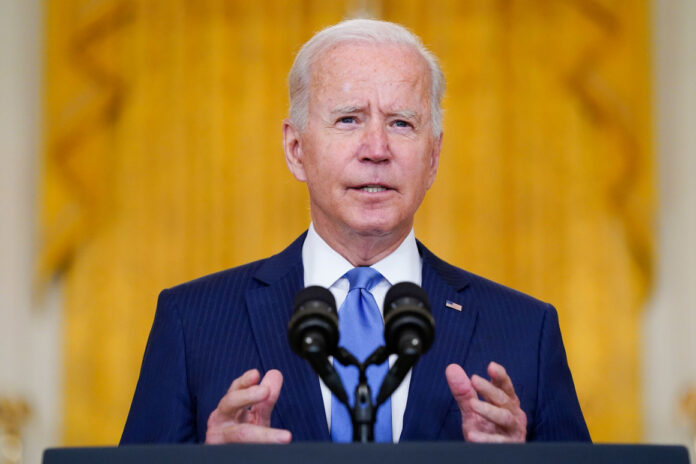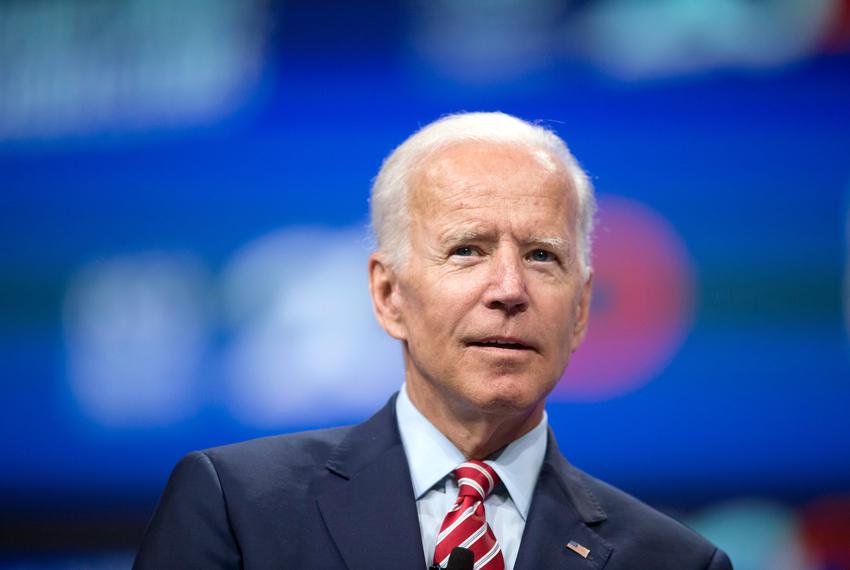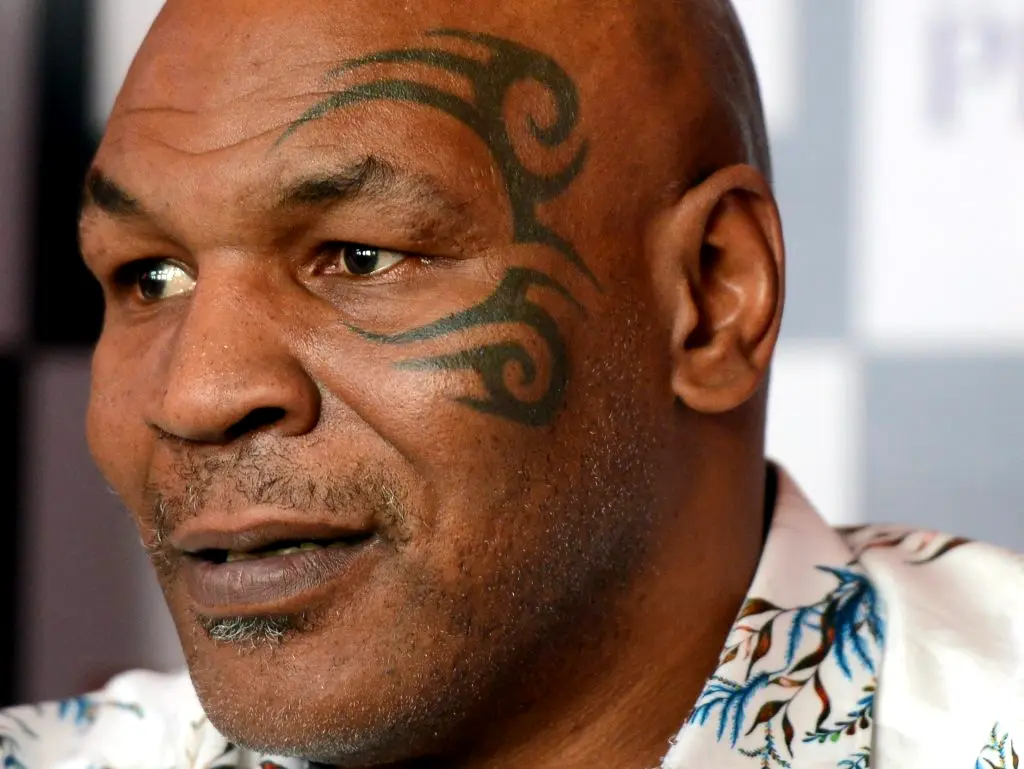Africa
Biden invites AU to join G20, plans visit to Africa in 2023

U.S. President, Joe Biden, yesterday, said he would support African Union (AU) joining the G20 group of large economies as a permanent member. He said this is part of Washington’s efforts to reinvigorate ties with the region. He added that over the next three years, the US would provide $55 billion in aid to Africa
Biden, speaking at a U.S.-Africa leaders summit event on the AU Agenda 2063, said the United States is looking to increase collaboration in all areas.
He said: “Africa belongs to the table in every room where global challenges are being discussed, and in every institution where discussions are holding. It’s been a long time in coming, but it’s going to come.”
South Africa is currently the only G20 member from Africa. The AU is made up of 55 member states. Biden’s remarks, and the summit, aim to position the United States as a partner to African countries amid competition with China, which sought to expand its influence by funding infrastructure projects on the continent and elsewhere.
Chinese trade with Africa is about four times that of the United States, and Beijing has become an important creditor by offering cheaper loans – often with opaque terms and collateral requirements – than Western lenders.
Having a seat at the table could help some African nations, many of which are not currently eligible for debt treatments under the G20 plan, advance their interests.
It will also give them a bigger say in key issues such as, the response to the COVID-19 pandemic and climate change and mounting frustration that rich countries are not taking enough responsibility for years of rampant fossil fuel usage that has contributed to global warming.
Also, President Biden said he plans to visit Africa. “I’m eager to visit your continent. As I told some of you, when you invited me to your countries. I said, ‘Be careful what you wish for. Because I may show up.’”
The president added: “I’m looking forward to see many of you in your home countries.” However, Biden did not say, which African nations he plans to visit, nor when he would make the trip.
First Lady, Jill Biden and Vice President Kamala Harris will also visit Africa, the President, said, as well as Secretary of State, Anthony Blinken; Defence Secretary, Lloyd Austin; Treasury Secretary, Janet Yellen and other officials.
“We’re all going to be seeing you and you’re going see a lot of us, because we’re deadly earnest and serious about this endeavour. And you’re going to see us deliver on our commitments.”
Former President Donald Trump was the first president since Ronald Reagan not to visit Africa. The last U.S. presidential trip to Africa came in 2013 when Barack Obama travelled to Senegal, South Africa and Tanzania.
The Biden administration this week has worked to rebuild ties with African leaders after Trump never hosted a US-Africa Summit, which was started under Obama in 2014.
AU Chairman and President of Senegal, Macky Sall, expressed gratitude to Biden, and pleaded that economic sanctions that have crippled Zimbabwe’s economy should be rescinded.
“And with this summit, and with the African Unions Agenda 2063, our eyes are fixed squarely on the future. African voices, African leadership, African innovation all are critical to addressing the most pressing global challenges towards realising the vision we all share: a world that is free, a world that is open, prosperous, and secure.”• U.S. commits to $55b spending in Africa
U.S. President, Joe Biden, yesterday, said he would support African Union (AU) joining the G20 group of large economies as a permanent member. He said this is part of Washington’s efforts to reinvigorate ties with the region. He added that over the next three years, the US would provide $55 billion in aid to Africa
Biden, speaking at a U.S.-Africa leaders summit event on the AU Agenda 2063, said the United States is looking to increase collaboration in all areas.
He said: “Africa belongs to the table in every room where global challenges are being discussed, and in every institution where discussions are holding. It’s been a long time in coming, but it’s going to come.”
South Africa is currently the only G20 member from Africa. The AU is made up of 55 member states. Biden’s remarks, and the summit, aim to position the United States as a partner to African countries amid competition with China, which sought to expand its influence by funding infrastructure projects on the continent and elsewhere.
Chinese trade with Africa is about four times that of the United States, and Beijing has become an important creditor by offering cheaper loans – often with opaque terms and collateral requirements – than Western lenders.
Having a seat at the table could help some African nations, many of which are not currently eligible for debt treatments under the G20 plan, advance their interests.
It will also give them a bigger say in key issues such as, the response to the COVID-19 pandemic and climate change and mounting frustration that rich countries are not taking enough responsibility for years of rampant fossil fuel usage that has contributed to global warming.
Also, President Biden said he plans to visit Africa. “I’m eager to visit your continent. As I told some of you, when you invited me to your countries. I said, ‘Be careful what you wish for. Because I may show up.’”
The president added: “I’m looking forward to see many of you in your home countries.” However, Biden did not say, which African nations he plans to visit, nor when he would make the trip.
First Lady, Jill Biden and Vice President Kamala Harris will also visit Africa, the President, said, as well as Secretary of State, Anthony Blinken; Defence Secretary, Lloyd Austin; Treasury Secretary, Janet Yellen and other officials.
“We’re all going to be seeing you and you’re going see a lot of us, because we’re deadly earnest and serious about this endeavour. And you’re going to see us deliver on our commitments.”
READ ALSO: JAMB remits N50bn to FG, expends N750m on CSR – Registrar
Former President Donald Trump was the first president since Ronald Reagan not to visit Africa. The last U.S. presidential trip to Africa came in 2013 when Barack Obama travelled to Senegal, South Africa and Tanzania.
The Biden administration this week has worked to rebuild ties with African leaders after Trump never hosted a US-Africa Summit, which was started under Obama in 2014.
AU Chairman and President of Senegal, Macky Sall, expressed gratitude to Biden, and pleaded that economic sanctions that have crippled Zimbabwe’s economy should be rescinded.
“And with this summit, and with the African Unions Agenda 2063, our eyes are fixed squarely on the future. African voices, African leadership, African innovation all are critical to addressing the most pressing global challenges towards realising the vision we all share: a world that is free, a world that is open, prosperous, and secure.”
Africa
When the Gatekeeper Fumbles: JAMB’s Error and the Future of Our Youth

When the Gatekeeper Fumbles: JAMB’s Error and the Future of Our Youth
By Matthew Eloyi
It is not every day that a public official publicly sheds tears. And so, when the Registrar of the Joint Admissions and Matriculation Board (JAMB), Professor Ishaq Oloyede, broke down while admitting to errors in the conduct of the 2025 Unified Tertiary Matriculation Examination (UTME), it was a deeply emotional moment. But make no mistake: while the tears may have reflected remorse, they cannot wash away the consequences of what is, quite frankly, a systemic failure.
Let us be clear — JAMB is not merely an examination body. It is a gatekeeper to higher education in Nigeria. It is the bridge between dreams and their realisation for millions of young Nigerians. To fumble that responsibility is not a technical error; it is a breach of trust with life-altering consequences.
With nearly 380,000 candidates now required to retake the exam due to technical glitches and irregularities, one cannot help but ask: How did we get here? And more importantly, why does this keep happening?
For years, JAMB has marketed its transition to computer-based testing as a step toward modernisation. Yet each year seems to expose new cracks in its implementation — from faulty computer systems and power outages to incomplete biometric verification and poorly configured questions. These are not unforeseeable anomalies. They are predictable outcomes of poor planning, lack of oversight, and inadequate investment in infrastructure.
Imagine the psychological toll on the students, many of whom studied day and night, only to be met with malfunctioning systems and flawed questions. Some walked out of examination halls in tears, their confidence shattered, their futures placed in limbo. For those in remote or under-resourced areas, the technical errors are compounded by infrastructural and economic disadvantages. What we are witnessing is not just an exam failure; it is an institutional failure that amplifies inequality.
JAMB’s decision to allow affected candidates a resit is necessary, but it is insufficient. What about those who may never realize they were victims of the glitch? What about those whose faith in the process has been irreparably broken?
Professor Oloyede’s tears may have been sincere, but what Nigerian students need now is not emotion — it is accountability. Heads must roll, systems must be overhauled, and the entire structure must be audited. We cannot allow a body that plays such a pivotal role in shaping the nation’s intellectual future to operate with such recklessness.
The UTME is a rite of passage for Nigerian students; it should not become a roulette of misfortune. Until JAMB can guarantee a glitch-free, fair, and standardised assessment, its credibility will remain on shaky ground.
In the end, our children deserve better. They deserve an education system that works; not one that breaks down and apologises after the damage is done.
Africa
ECOWAS Confirms Burkina Faso, Mali, Niger’s Exit, Keeps Doors Open for Return

The Economic Community of West African States (ECOWAS) has confirmed that the withdrawal of Burkina Faso, Mali, and Niger from the regional bloc takes effect from January 29, 2025.
ECOWAS spokesperson Joel Ahofodji, in a statement on Wednesday, said the decision aligns with the ECOWAS authority’s resolution and reflects the spirit of regional solidarity and the interests of the people.
Despite their exit, Ahofodji emphasized that the bloc remains open to the return of the three Sahel nations whenever they choose.
“All relevant authorities within and outside ECOWAS Member States should take note of this development,” he said.
To minimize disruptions, ECOWAS urged the continued recognition of national passports and identity cards bearing the ECOWAS logo held by citizens of Burkina Faso, Mali, and Niger until further notice.
Additionally, the commission called for the continued application of the ECOWAS Trade Liberalisation Scheme (ETLS) and investment policies for goods and services from the departing nations. It also stressed that their citizens should retain the right to visa-free movement, residence, and establishment under existing ECOWAS protocols.
Furthermore, ECOWAS requested full support and cooperation for its officials from the three countries as they continue their assignments.
“These arrangements will be in place until the full determination of the modalities of our future engagement with the three countries by the ECOWAS Authority of Heads of State and Government,” Ahofodji stated.
He revealed that ECOWAS has set up a structure to facilitate discussions on these modalities, ensuring a smooth transition.
“This message is necessary to avoid confusion and disruption in the lives and businesses of our people during this transition period,” he added.
The News Agency of Nigeria (NAN) reports that Burkina Faso, Mali, and Niger initially announced their intention to leave ECOWAS on January 29, 2024, in accordance with the bloc’s protocol, which allows for a 12-month notice period. In December 2024, ECOWAS officially acknowledged their right to exit but reiterated its willingness to welcome them back in the future.
Africa
Customs hands over illicit drugs worth N117.59m to NDLEA

The Nigeria Customs Service (NCS), Ogun Area 1 Command, has handed over illicit drugs worth N117.59 million to the National Drug Law Enforcement Agency (NDLEA).
The Comptroller of the command, Mr James Ojo, disclosed this during the handing over of the drugs to Mr Olusegun Adeyeye, the Commander of NDLEA, Idiroko Special Area Command, in Abeokuta, Ogun, on Friday.
Ojo said the customs handed over the seized cannabis and tramadol tablets to the Idiroko Special Command for further investigation in line with the standard operating procedures and inter-agency collaboration.
He said the illicit drugs were seized in various strategic locations between January and November 21, 2024, in Ogun State.
He added that the illicit drugs were abandoned at various locations, including the Abeokuta axis, the Agbawo/Igankoto area of Yewa North Local Government Area, and Imeko Afton axis.
Ojo said that the seizure of the cannabis sativa and tramaling tablets, another brand of tramadol, was made possible through credible intelligence and strategic operations of the customs personnel.
“The successful interception of these dangerous substances would not have been possible without the robust collaboration and support from our intelligence units, local informants and sister agencies.
“These landmark operations are testament to the unwavering dedication of the NCS to safeguard the health and well-being of our citizens and uphold the rule of law,” he said.
He said the seizures comprised 403 sacks and 6,504 parcels, weighing 7,217.7 kg and 362 packs of tramaling tablets of 225mg each, with a total Duty Paid Value of N117,587,405,00.
He described the height of illicit drugs smuggling in the recent time as worrisome.
This, he said, underscores the severity of drug trafficking within the borders.
“Between Oct. 13 and Nov. 12 alone, operatives intercepted a total of 1,373 parcels of cannabis sativa, weighing 1,337kg and 362 packs of tramaling tablets of 225mg each,” he said.
Ojo said the seizures had disrupted the supply chain of illicit drugs, thereby mitigating the risks those substances posed to the youth, families and communities.
He lauded the synergy between its command, security agencies and other stakeholders that led to the remarkable achievements.
Ojo also commended the Comptroller General of NCS for creating an enabling environment for the command to achieve the success.
Responding, Adeyeye, applauded the customs for achieving the feat.
Adeyeye pledged to continue to collaborate with the customs to fight against illicit trade and drug trafficking in the state.
-

 Headlines4 years ago
Headlines4 years agoFacebook, Instagram Temporarily Allow Posts on Ukraine War Calling for Violence Against Invading Russians or Putin’s Death
-

 Headlines4 years ago
Headlines4 years agoNigeria, Other West African Countries Facing Worst Food Crisis in 10 Years, Aid Groups Say
-

 Foreign3 years ago
Foreign3 years agoNew York Consulate installs machines for 10-year passport
-

 News1 year ago
News1 year agoZero Trust Architecture in a Remote World: Securing the New Normal
-

 Entertainment3 years ago
Entertainment3 years agoPhyna emerges winner of Big Brother Naija Season 7
-

 Headlines1 year ago
Headlines1 year agoNigeria Customs modernisation project to check extortion of traders
-

 Economy2 years ago
Economy2 years agoWe generated N30.2 bn revenue in three months – Kano NCS Comptroller
-

 Entertainment2 years ago
Entertainment2 years agoMovie download platform, Netnaija, announces closure












